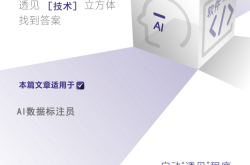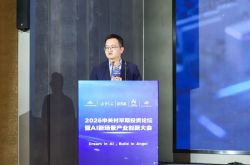Zhou Hongyi Embraces the Agent Trend, Committing Fully to AI's Next Frontier
![]() 08/07 2025
08/07 2025
![]() 674
674
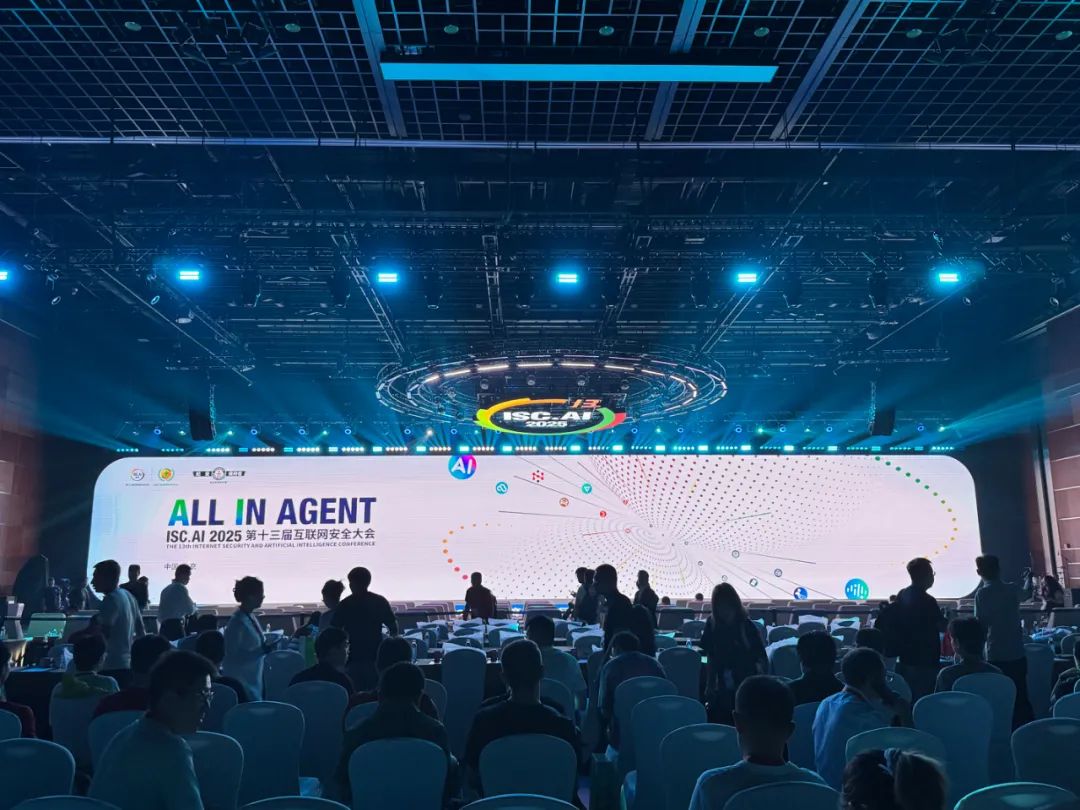
Image Source: Taken by Tang Chen before the conference began
Following his All in AI strategy, Zhou Hongyi is now committing fully to Agents.
At the 13th Internet Security Conference (ISC.AI 2025), Zhou Hongyi declared in his keynote speech titled "ALL IN AGENT," "Regardless of our endeavors this year, our business will be all in on Agents."
This may be the first time a leading enterprise has boldly proclaimed an All in Agent slogan, as the industry contends with the fervor of large models over the past three years.
As a conference focused on internet security and 360's annual main event, ISC has incorporated AI themes since last year, with this year's official name including the suffix, ISC.AI.
Explaining the change and the focus on Agents, Zhou Hongyi noted, "This year is a very special year for AI, not only the inaugural year of Agents but also the most crucial year for the practical application and development of artificial intelligence."
"Agents are an evolution of large models"
Many view Zhou Hongyi as having learned from Lei Jun to become an internet celebrity entrepreneur, building his personal IP. Through short videos, crossover into the automotive industry, and keeping abreast of AI hotspots, he has discovered a new traffic strategy.
However, it must be acknowledged that Zhou Hongyi's grasp of technological trends, industry insights, and marketing topics are unparalleled in the industry.
He emphasized in his speech that while large models are becoming increasingly powerful, they are insufficient on their own. "Large models lack hands and feet, cannot use tools, and cannot directly perform tasks. Agents will be the solution, capable of understanding goals, planning tasks, invoking tools, possessing memory, and achieving complete delivery from demand to result."
According to his previous views, the next two years will be critical for the practical application of Agent technology. "Large models are the engine, and Agents are the vehicle. Ultimately, vehicles are needed to solve practical problems."
To introduce the shift that "Agents are an evolution of large models," Zhou Hongyi pointed out that people have been immersed in their own worlds for too long and need to see how the AI wave is transforming the world.
Earlier, during the 2025 Tianjin Summer Davos Forum, he analyzed in an interview with local media, "If AI cannot evolve into Agents this year, this wave of innovation may just be a bubble!"
In his view, large models' capabilities are becoming increasingly powerful, yet people still perceive them as toys, with limited enterprise application effectiveness.
This is due to two main issues: First, the model's reasoning ability is insufficient, akin to a knowledge question-answering model; second, the model lacks the ability to work independently and is not adept at using tools.
While DeepSeek's reasoning model addresses the issue of insufficient reasoning, the second problem remains unsolved. "Large models are like brains in jars or bottles, capable only of thinking, reasoning, and communication, but lacking hands, feet, and tools, unable to directly perform tasks."
The emergence of Agents resolves these two issues:
First, by leveraging large models' reasoning abilities, Agents can autonomously understand task goals, plan and decompose tasks, and complete complex work from start to finish. This is the fundamental distinction from large models.
Second, internationally, the MCP tool standard has been introduced, turning various APIs and tools into public standards like USB interfaces, enabling Agents to utilize various tools and possess memory capabilities. The evolution of large models into Agents mimics human evolutionary capabilities, combining reasoning, executing complex processes, and using tools.
Zhou Hongyi summarized that there are many misconceptions about Agents. In reality, large models and Agents are not mutually exclusive: Agents encompass large models, with large models serving as Agents' brains, and Agents functioning as the bodies, hands, and feet of large models.
Old Method, New Content: Trends in Agents
A pivotal aspect of Zhou Hongyi's public topic setting is conducting trend analysis centered on AI. For instance, regarding AI development, he has presented his own judgments on multiple occasions, such as at the China Entrepreneur Leadership Annual Meeting. At events like the launch of the OnePlus Ace 3V, he has also combined changes in the mobile phone industry and the evolution of AI technology to make eight predictions about AI phones.
This approach, blending viewpoints, gimmicks, and a degree of foresight, creates memorable points in communication and rapidly captures traffic.
At the ISC.AI conference, Zhou Hongyi also shared several trends regarding Agent development.
Regarding whether Agents should be general-purpose or specialized, he strongly advocates the path of specialized Agents. He stated that omnipotent Agents do not exist, at least not with the current capabilities of large models. In the future, Agents need to break through in specific fields and focus on completing single tasks to facilitate easier application and better integration into business processes.
Simultaneously, Agents require multiple base models to collaborate and provide intellectual support. A single model cannot simultaneously meet the complex task requirements of Agents. For example, there is a need for knowledge-based Agents and reasoning-based Agents. Even in the future, to enable Agents to use tools more accurately, it may be necessary to specifically train Agents for tool management, recognition, and matching, including visual Agents. Currently, AI-assisted programming models are continuously improving.
Regarding the barriers to the development of specialized Agents, he believes the main barriers are the "privatization of knowledge barriers" and "non-standard barriers of internal enterprise tool protocols." To overcome these barriers, on the one hand, enterprises need to compile their internally accumulated professional knowledge into a knowledge base, allowing Agents to more accurately understand business and work, and promoting Agents to better complete specialized and personalized tasks;
On the other hand, it is necessary to transform the various professional tools originally used by people within the enterprise into MCP standards, enabling Agents to utilize them.
Regarding the development direction of Agents, Zhou Hongyi believes it is multi-Agents. Since the capabilities of a single Agent are limited, and they may experience task burnout, refusing to execute subsequent instructions after multi-step tasks, collaboration through multiple Agents with different specialties is necessary.
On this basis, the future paradigm of human-computer interaction will undergo fundamental changes. People's understanding of Agents must shift to treating them as digital partners rather than software and tools. When users interact with Agents, users will become the bosses and leaders of Agents.
Zhou Hongyi quoted the view of the Google CEO: "The result of embracing artificial intelligence is jagged," meaning that even the same instruction may produce different results. Therefore, humans need to "learn to embrace uncertainty" and optimize Agents' output through multiple rounds of interaction and feedback. This "human guidance + Agent execution" collaboration mode may become the core paradigm for enhancing enterprise efficiency in the future.
Humans' roles will also undergo profound changes. For example, work content will shift to defining Agents, planning Agents, managing Agents, and supervising Agents. Agents will become our workhorses for handling tedious tasks, and humans will learn to collaborate with Agents. In this way, everyone will become a super individual, and companies that extensively utilize Agents will also become super organizations, potentially reshaping the entire economic form and operational logic.
Zhou Hongyi also addressed the industry phenomenon of an extremely short product lifecycle for Agent products, proposing that the only competitive advantage for current Agent manufacturers is execution and rapid adaptability. In other words, the key to competition in the Agent industry lies not in launching a product but in updating and iterating it at an extremely fast speed.
To illustrate this point, Zhou Hongyi referenced autonomous driving and introduced the concept of "Swarm L4." He divided the development of Agents into five levels, with significant differences in task types, Token consumption, tool invocation volume, etc., across levels. As the level increases, Agents' task processing capabilities, complexity, and application value also rise.
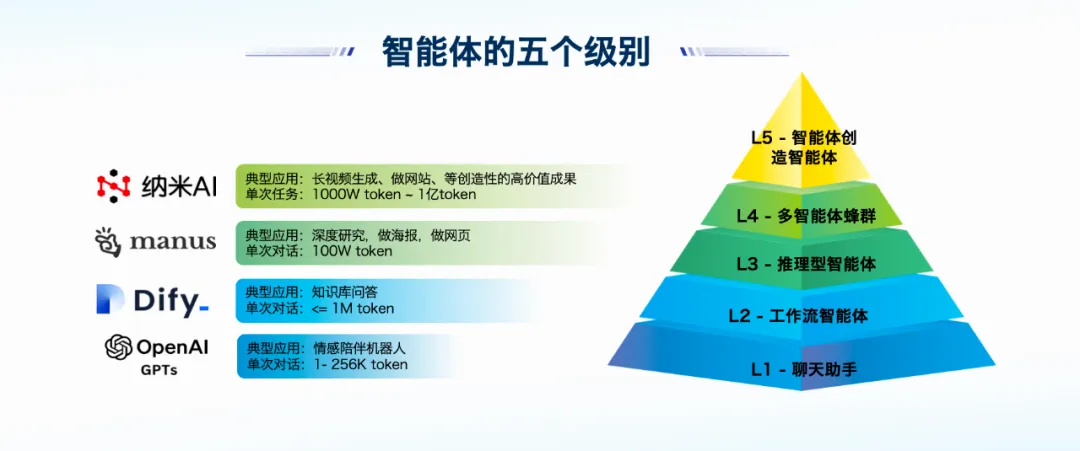
Image Source: Official promotional image
Among them, L1 is primarily used for daily simple communication, L2 is suitable for routine workflow tasks in enterprises, L3 plays a crucial role in professional fields, and L4 can handle large and complex projects. Regarding the higher L5, Zhou Hongyi did not elaborate. Perhaps at the current stage, where L4 demonstrates strong task processing capabilities and application value, the specific evolutionary direction requires collective exploration by the industry and cannot be fully defined by 360 alone.
The core of 360's perspective on Agents remains security
360's primary business is still security. Zhou Hongyi flexed his muscles a bit, stating that this year marks the 20th anniversary of 360, which holds numerous global leadership positions in cybersecurity. For instance, it boasts the world's largest security big data, national-level network attack detection, capture, and defense capabilities, a globally leading scale of security talents, and vulnerability mining capabilities, among other achievements. It also ranks first in eight domestic areas. "Although 360 is a private enterprise, it is already the national team for digital security and AI."
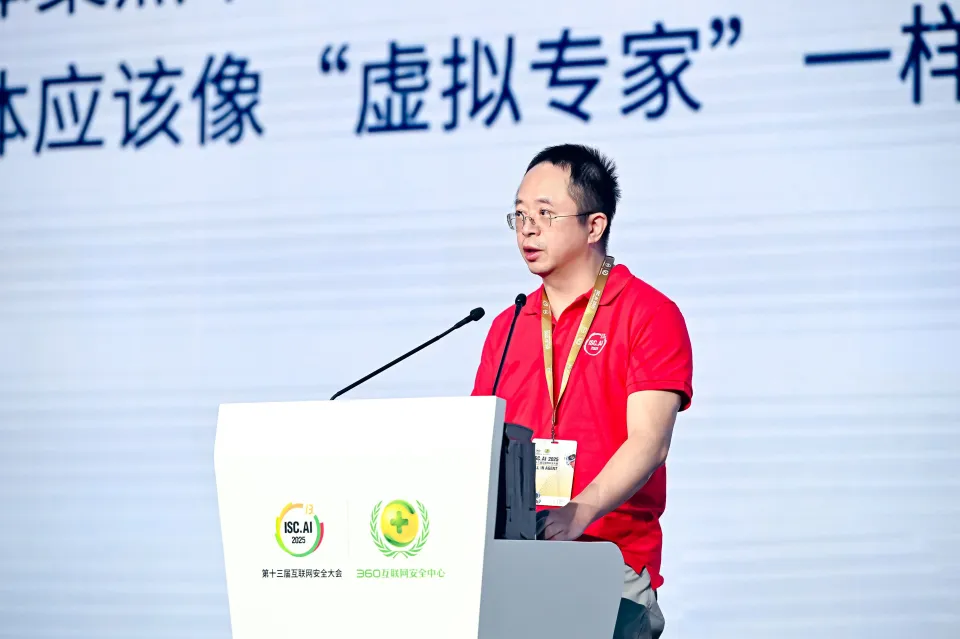
Image Source: Official promotional image
At the beginning of his speech, Zhou Hongyi left a suspense: to look beyond security to see security. In the end, he returned to the core proposition of "The AI era calls for security Agents."
To this end, he set the stage: In the era of Agents, the penetration of AI technology is reconstructing the cybersecurity offense and defense landscape. Currently, enterprises face dual challenges.
On the one hand, there is an acute shortage of security operations experts, with a long and arduous training period. While traditional large models can handle some basic tasks, they struggle with complex and routine operational work, hindering the implementation of protection capabilities;
On the other hand, hackers, once rare and elusive, can now train "Agent hackers" through AI. These automated attack tools can independently complete a series of attack tasks and can be replicated in batches leveraging computing power, pushing the offense and defense confrontation into a new stage of "machine vs. machine." A single hacker can control hundreds of Agent hackers to launch automated attacks in batches, exacerbating the risk of cyberwarfare.
In response, building on his previous statement about the inaugural year of Agents, Zhou Hongyi further elaborated, "2025 is not only the first year of Agents but also the birth year of security Agents."
This can be understood as security being the foundation of digitization and intelligence. To address the security challenges faced by Agent development, the key lies in creating security Agents.
Security Agents are digital avatars of security operations experts. Based on the brain of the security large model, they are endowed with the abilities of tool invocation and process execution, fully replicating senior experts' analysis, decision-making, and practical operation capabilities, enabling a qualitative breakthrough in security capabilities.
In this sector, 360 is the pioneer in driving security with Agents. Of course, this is not a game played exclusively by 360. Zhou Hongyi added that domestic enterprises, including 360, have the opportunity to create security Agents and produce products comparable to those of the world's top AI companies. This is because we can establish professional barriers in various aspects such as data, knowledge, tools, workload, security large models, and Agent platforms.
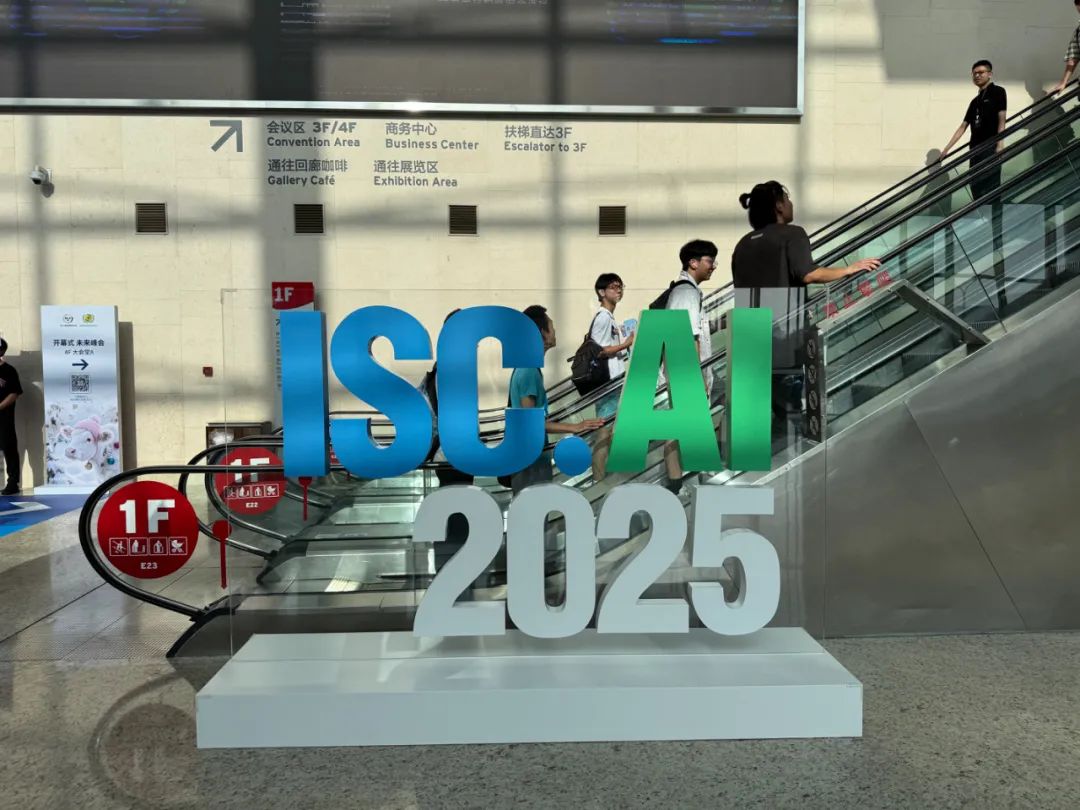
Image Source: Taken by Tang Chen at the event site
Zhou Hongyi tirelessly promoted his own products: 360 offers various ways to utilize security Agents, and everyone can directly use out-of-the-box security Agents.
"We have dozens of Agents ready to go. If users are not satisfied with the results, they can also customize security Agents or even regroup existing Agents with their own Agents."
Currently, all 360 products are evolving towards Agentization. Its launched "Agent Factory" can be applied to multiple security scenarios such as security alarm handling. It also supports enterprises in customizing security Agents, allowing them to build Agents through natural language without programming.
Taking the 360 Security Cloud business line as an example, 360 Security Cloud has released three categories of Agents for security, management, and enterprise services, utilizing AI Agents to reconstruct the security operation model.
In other words, whether it's All in AI or All in Agent, from 360's perspective, the focus remains on security. Just as Zhou Hongyi once responded to the controversy of becoming an internet celebrity by saying that being an AI influencer is to promote the company's AI products and assist in 360's strategic transformation towards artificial intelligence.
Zhou Hongyi spares no effort in this regard, and this time is no exception.
References:
Zhou Hongyi, "ISC.AI 2025: Zhou Hongyi's Address – The AI Era Demands Security Guardians"

